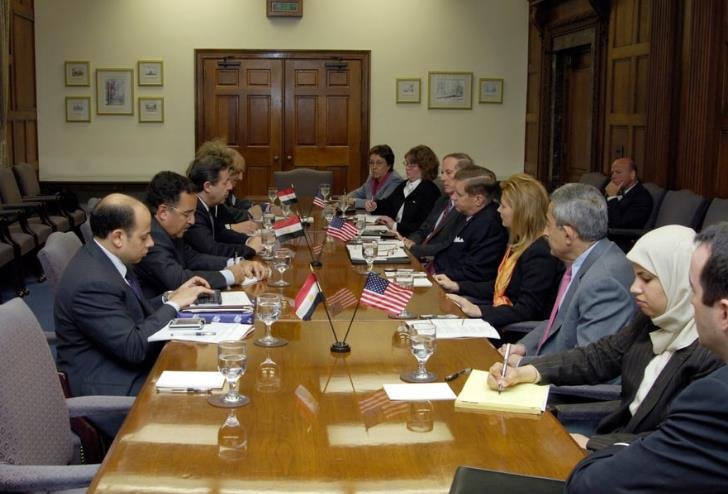In a significant diplomatic exchange, Chinese Foreign Minister Wang Yi and Egyptian Foreign Minister Badr Abdelatty held phone talks to discuss bilateral relations and the current situation in the Middle East. This conversation underscores the deepening strategic partnership between China and Egypt, as well as their shared concerns over regional stability. The dialogue reflects both nations’ commitment to enhancing cooperation and addressing pressing geopolitical issues.
The phone talks between the Chinese and Egyptian foreign ministers highlighted the robust and growing relationship between the two countries. Under the leadership of Chinese President Xi Jinping and Egyptian President Abdel Fattah el-Sisi, the comprehensive strategic partnership has reached unprecedented levels. Both leaders have emphasized the importance of this partnership in their respective foreign policies, aiming to foster closer economic, political, and cultural ties.

During the conversation, Wang Yi praised the successful state visit of President el-Sisi to China in May, which laid the groundwork for future cooperation. The ministers discussed various areas of collaboration, including trade, investment, and infrastructure development. They also explored opportunities for joint projects under China’s Belt and Road Initiative, which aims to enhance connectivity and economic integration across Asia, Africa, and Europe.
Badr Abdelatty expressed Egypt’s appreciation for China’s support in various sectors, including technology transfer and capacity building. He reiterated Egypt’s commitment to working closely with China to implement the agreements reached during the state visit. The ministers agreed to maintain high-level exchanges and strengthen coordination on regional and international issues.
Addressing Middle East Tensions
The discussion also focused on the volatile situation in the Middle East, particularly the ongoing conflict in Gaza. Wang Yi condemned the recent assassination of Hamas Politburo Chief Ismail Haniyeh in Tehran, describing it as a violation of international law and a threat to regional stability. He emphasized China’s opposition to such acts of violence and called for a comprehensive ceasefire in Gaza.
China’s foreign minister outlined a three-step initiative to address the Gaza conflict: achieving a comprehensive ceasefire, promoting post-war governance under the principle of “the Palestinians governing Palestine,” and effectively implementing the two-state solution. Wang Yi stressed the need for international cooperation to support these efforts and prevent further escalation.
Badr Abdelatty acknowledged China’s constructive role in promoting peace and stability in the Middle East. He highlighted Egypt’s efforts to mediate between conflicting parties and facilitate humanitarian aid to Gaza. The Egyptian foreign minister expressed hope for continued collaboration with China to address the root causes of the conflict and promote a lasting resolution.
Future Prospects and Cooperation
Looking ahead, both ministers expressed optimism about the future of China-Egypt relations and their potential to contribute to regional stability. They agreed to enhance cooperation in various fields, including counter-terrorism, climate change, and public health. The ministers also discussed the importance of multilateralism and the need to uphold the principles of the United Nations Charter.
The phone talks underscored the strategic alignment between China and Egypt on key global issues. Both countries share a commitment to promoting peace, development, and international cooperation. By strengthening their bilateral ties and working together on regional challenges, China and Egypt aim to play a pivotal role in shaping a more stable and prosperous Middle East.
The dialogue between Wang Yi and Badr Abdelatty reflects a broader trend of increasing engagement between China and Middle Eastern countries. As China continues to expand its influence in the region, partnerships like the one with Egypt will be crucial in addressing complex geopolitical issues and fostering sustainable development.
